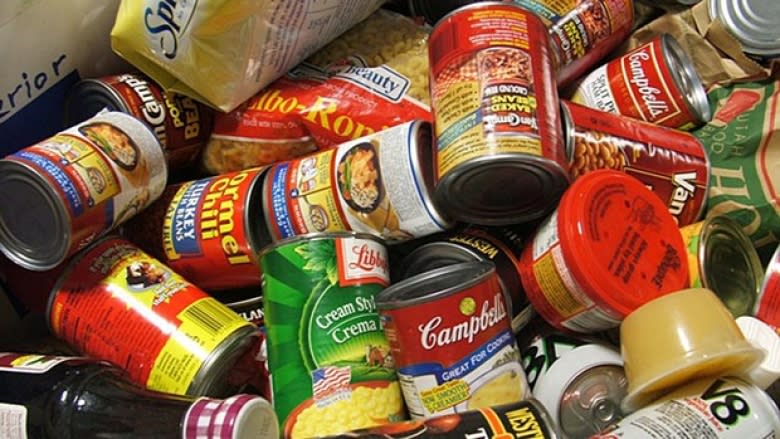Food Depot in Moncton wants to eliminate food waste in city
The Food Depot charity in Moncton has set a goal for the city of eliminating all of its food waste.
"What we really want to do is we want Moncton to become a zero-waste city," executive director Chantal Senecal said in an interview.
To get to that point, the charity has developed a food recovery program, in which it collects donations from grocery stores of food that is near or just past its best-before date.
The charity follows guidelines from Food Banks Canada to ensure that the food is still fresh.
Food Depot then adds the recovered food to its weekly shipments to the food banks, soup kitchens and homeless shelters that have joined the program in the city.
Prior to Monday's announcement, the charity was already piloting the program with a handful of grocery stores in the area — Sobeys on Vaughan Harvey Boulevard, Atlantic Superstore on Trinity Drive, Atlantic Wholesale Cash & Carry on St. George Boulevard and Costco.
"If we can start with the big box stores or the big retailers, we're really hoping that it's going to set an example for everybody," Senecal said.
That could include any business or individual with the capacity to safely store food before donating it, she said.
"I think ... it's just really going to change the community," Senecal said.
Among those participating in the program is the City of Moncton.
Kayla Breelove Carter, the city's community development officer for social inclusion, stated in a news release that the program helps with the city's goal of reducing both food and drink waste.
"We are happy to partner with such wonderful community organizations working hard to better the lives of our citizens," she stated in the release.
The city has provided Food Depot with a grant, which the charity used along with funds from Food Banks Canada, to retrofit one of its trucks to provide refrigeration.
Pilot program showing 'great' results
"We're seeing great results," Senecal said. "It just makes sense for everybody and I think everybody's really excited to be able to donate the food versus throwing it out."
The donated meat is a highlight.
"We're really excited about that because it's not something that we get donated often and, up until recently, we really didn't have any meat to offer to our programs in the community," she said. "So, that's been a really big boost for us."
Meanwhile, donations of fresh food are going to have a "huge impact" on community organizations that would ordinarily have to fundraise large sums of money in order to buy vegetables, dairy products and meat. Senecal says the new program could help alleviate some of the financial strain facing some of the community organizations.
She also hopes that this will benefit the grocery stores, which will no longer face costs such as dumping fees.
"So it'll be kind of advantageous on both sides."
Quantifying regional food waste
Senecal couldn't say on Monday exactly how much food is being wasted, only, "I think it's more than what we think.
"We're going to have better stats once the program's really underway and we start tracking it," she said.
That will likely happen about a year from now.
The organization is excited to see how many pounds of food the program recovers from participating stores, she said, adding that it's already seeing "huge amounts" of food.



